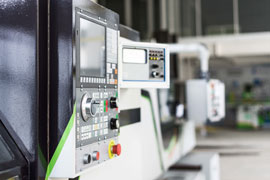 One of the earliest flights between two countries took place on January 7, 1785, when Jean-Pierre Blanchard and John Jeffries crossed the English Channel by hot air balloon. It wasn’t until over a century later that a heavier-than-air object repeated the journey. Here, Jonathan Wilkins, marketing director at obsolete industrial parts supplier EU Automation, discusses how technology has changed how businesses operate internationally.
One of the earliest flights between two countries took place on January 7, 1785, when Jean-Pierre Blanchard and John Jeffries crossed the English Channel by hot air balloon. It wasn’t until over a century later that a heavier-than-air object repeated the journey. Here, Jonathan Wilkins, marketing director at obsolete industrial parts supplier EU Automation, discusses how technology has changed how businesses operate internationally.
At the start of the 20th century, developments in aviation technology took off and the first airline to operate international flights was launched in 1917. Since then, the ability to travel and transport goods internationally has dramatically altered the way companies do business.
Globalization
Technological developments, both in and outside of factories, have impacted the manufacturing industry’s globalization — the process by which businesses and other organizations develop international influence or start operating internationally. Ever since the first industrial revolution, industrialization has impacted international business. In particular, advances in transport and telecommunications have had a huge impact. With increasing trade and communication, more and more companies are extending their reach across land and sea.
In fact, the modern manufacturing supply chain is centered around globalization. Every day, goods are moved across the globe on shipping lines, freight forwarders and by air. Business activities, including outsourcing of logistics, facilities management, professional services and maintenance, can all be international processes.
Industry 4.0
With every major industrial and technological change, the characteristics of globalization have been altered. In 2011, the term Industry 4.0 was introduced by the German government and Siemens at Hannover Messe. Industry 4.0 shifts manufacturing away from analogue and mechanical technologies and towards all things digital.
As information technology (IT) and operational technology (OT) converge, companies are beginning to find new ways to connect. Data collected from suppliers, customers and the enterprise can be aligned with detailed production information, which means processes can be fine-tuned in real-time. The digital and physical worlds have become irrevocably linked, with machines, systems and people able to exchange information and automatically adjust. Industry 4.0 is not just revolutionizing manufacturing processes, but also having a powerful impact on the model of globalization, by changing the workforce and increasing the ease of access to services.
Blurring the boundaries
In the dawn of Industry 4.0, companies are using more complex, worldwide supply chains and data networks in their operations. Physical connectivity is being replaced with an increasing number of digital links — many of which are stored in the cloud. Greater international collaboration is more possible than ever before. Using cloud-based software, any member of staff in any geographical location can contribute to a design. This function is being increasingly offered in computer aided design (CAD) software, making design a more collaborative process.
However, globalization is not just improving the design process. Businesses can get the most out of their talent pool or international supplier network using digital connectivity, as expertise can be offered remotely and in real-time. In many international companies, suppliers or staff members work in small clusters to increase the flow of ideas, which can be spread more widely using the cloud. Cheap data storage and transfer will increase the decentralization and flexibility for businesses.
Operating in this way may mean the international company of the future does not need a significant physical presence across the globe, but could operate from just a few clusters.
International competition
Increased connectivity means that companies must now be competitive on a global scale and cannot rely on their physical location to win business. This means that companies must focus on meeting ever-changing consumer demands. Keeping manufacturing and production flexible and incorporating automated technologies can cut production times and allow companies to respond quicker, increasing competitive advantage.
Logistics has come a long way since the first flight across the channel. Industry 4.0 has revolutionized business operations both inside and outside the factory, increasing the links between international businesses and driving the process of globalization forward.






